I do so love a good sports film (even if peppered with political intrigue), and it usually doesn’t matter the sport (nor if I’m familiar with the rules) if it’s done well (case in point: MIRACLE, and I knew nothing about hockey beforehand). Here, we’ve got Morgan Freeman (WANTED) as former South African president Nelson Mandela doing what he can to unite the country soon after his election in 1994 (with a script making obvious allusions to the current state of affairs in a certain region of North America that starts with “U”); it’s Matt Damon (THE INFORMANT) as the captain of the pathetic South African Springboks Rugby team (Francois Pienaar); it’s Clint Eastwood (GRAN TORINO) directing the incredible true story of perserverance and patriotism under the most difficult of circumstances.
A little history lesson: In the wake of the bitter years of apartheid rule, Mandela chooses the Springboks — a name emblematic of the old South Africa — as a rallying cry for new-found racial harmony and a chance for team (and state) greatness on their way to the 1995 Rugby World Cup championships. Madiba (as Mandela is affectionately known by his closest staffers) approaches Pienaar to lead the charge — a task Pienaar somewhat reluctantly accepts due to the Herculean feat and inherent danger behind the high-profile position — giving the team additional financial backing and unwavering support to bolster their drive. Francois’s hesitance is multiplied ten-fold by his teammates, who don’t see the immediate benefit of their new public relations campaign nor true belief in themselves to, at the very least, make a good showing in the tournament (much less outright win the thing). But, gradually, the tide begins to turn as South Africans of every creed and color, so too, begin to believe. It’s an extraordinary story about the inevitability of (and necessity for) change.
So… the table is set. We should really like this movie, shouldn’t we? Well… I wanted to’ve (and should’ve) liked it a lot more than I did, but the truth is INVICTUS comes off as little more than a distractively manipulative, underwhelming political drama with an unstable core, while simultaneously being a solid sports film with high crowd appeal (confusing enough for ya?). To be honest, the source of the problematic side may be Freeman himself. Already a filmstar of arguably near-legendary proportions, it’s questionable he’s the right person to take on the role of the larger-than-life Mandela (who many people, even outside of Africa, would recognize on sight). My beef is that Freeman, first and foremost, doesn’t look anything like the leader (other than maybe an additional graying of his hair); we just see… Morgan Freeman. Secondly, Freeman sounds less like Mandela and much more like his character Azeem from 1991’s ROBIN HOOD: PRINCE OF THIEVES, so it’s more difficult still for the audience to make the jump in comparison. This may sound confusing at first, but my point is that what we’re constantly experiencing is Freeman as Mandela… not simply Mandela (which should be the goal here, correct?). And because Freeman already has those visual/auditory issues against him, it means he has to give, in no uncertain terms, one of the best performances of his career. Sad to say, it’s a caricaturized, overtly-simplistic turn that just doesn’t hit the mark the way we think it should. This is about as much a Mandela biography (with brief flashbacks to his 30-year prison sentence) as it is a sports film; kind of important to make sure that central-figure anchor is there.
It’s not all a wash, however. Damon gives a fine performance (along with a passable S. African English accent) as Pienaar, and his motivational moments are indeed moving and profound. Additionally, there are plenty of “Wow!” instances throughout — in both the political and sports arenas (though some would say “What’s the difference?”). Specifically, I’ll make note of 1) Mandela’s plea for the national rugby committee to retain the “Springbok” name and colors and 2) the final match with the New Zealand mammoth players (the last 20 minutes or so) — who, by all accounts, were the team to beat — both of which are truly inspirational scenes. Furthermore, Eastwood shoots the on-field sports action superbly — constantly moving and panning his camera through, around, and over the players and the expanse of the ballpark — and in a way that allows the viewer to figure out the game on their own without forgetting the fact that the majority of his audience has never seen a professional rugby match (hey, I’ve had a few rugby shirts in my day; do those count?). If I had one complaint, it’s the too-repetitive times he shows five or six groups of across-town spectators following the game via TV or radio; after the fifth time showing the same jumping and cheering fans, it’s enough already; but Eastwood (or at least his film editor) doesn’t know when to quit (a problem that has plagued him in the past on more than one occasion).
On one hand, INVICTUS: THE POLITICAL BIO falls short in honoring one of the most influential figures of modern times; it lacks cohesive, steady story-telling, instead serving up snippets of Mandela’s deeds without really showing us much of the man’s unquestionable depth. On the other, INVICTUS: THE SPORTS MOVIE gives us a unique look at a sport that’s foreign to most Americans and in a climate that needed this team more than anyone knew at the time.



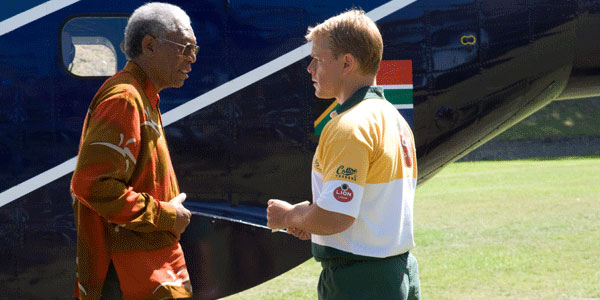
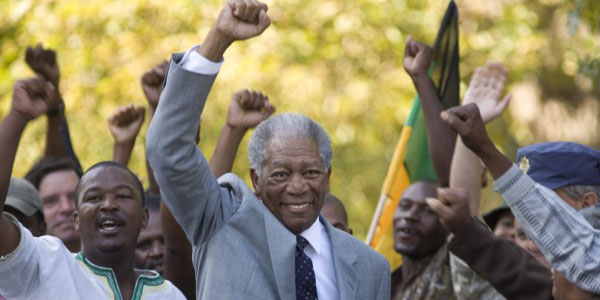
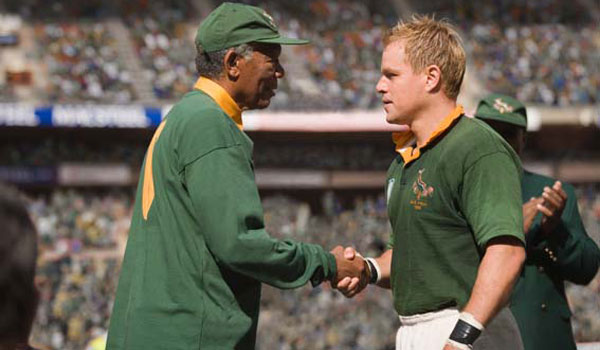




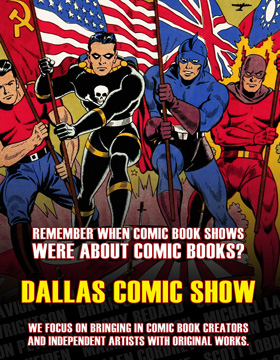
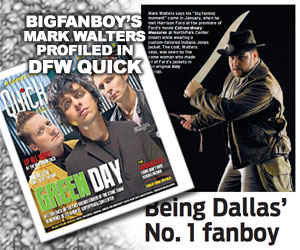
—The LONG rich ‘earnest’ Eastwood has lots and lots
of time and money for pointless, PC snuff films, and,
perhaps worse, safe, ‘feel good’ slop like this —
-EVEN AS!-
MILLIONS lie imprisoned, suffering and dying
sanctioned and supported by Hollywood’s ‘fave’ creditor
and mass market paradise –otherwise known as history’s –MOST–
awesomely genocidal regime -bar none! —RED China.
ESP. disturbing on this, the once again ‘mysteriously overlooked’
60th Anniversary of the virally important, genuinely, staggeringly
relevant —60th Anniversary of the KOREAN WAR.
-AND MORE DISTURBING YET coming form our bauling ‘daring maverick’
–Korea era draftee who NEVER saw combat —or even Korea
—-Clint Eastwood…
-AMEN-